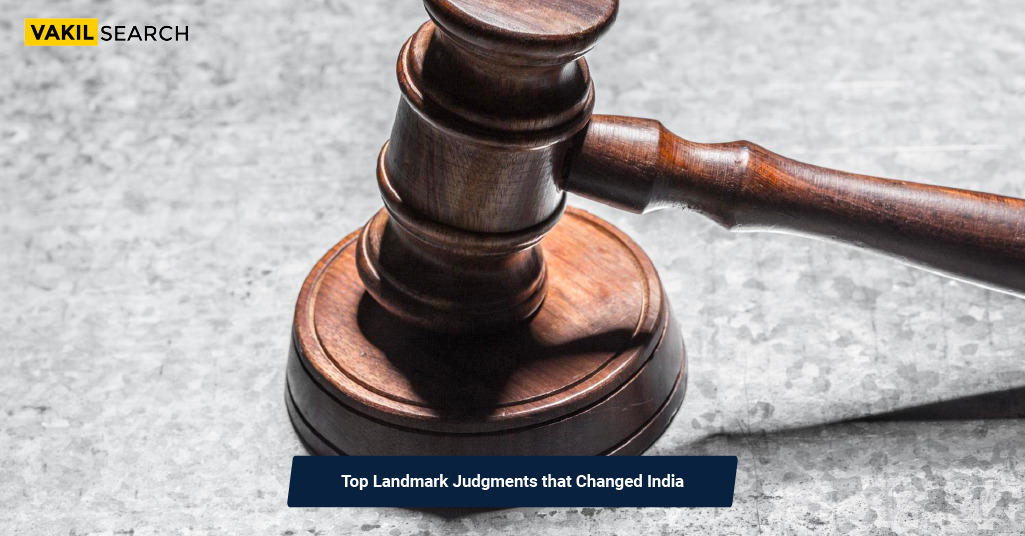Court decisions shaping law, establishing new principles, clarifying existing ones, and overturning previous rulings.
Landmark judgments are those that have significantly impacted the legal landscape of a country, often setting precedents or establishing new principles of law. In India, a vibrant democracy with a rich legal history, there have been numerous landmark judgments that have shaped the nation’s social, political, and economic fabric.
What Is a Landmark Judgment?
A landmark judgment, also known as a precedent-setting decision, is a court decision that has a significant and lasting impact on the law. These judgments typically establish new legal principles, clarify existing laws, or overturn previous rulings. They often have a profound impact on society by addressing important social issues, protecting fundamental rights, and promoting legal reform.
Here are some of the characteristics of a landmark judgment:
- It is groundbreaking and transformative: It makes a significant and lasting contribution to the law, either by establishing a new legal principle or by significantly modifying an existing one.
- It has widespread impact: It is not limited to a single case or issue, but rather has a broad and lasting impact on the legal system.
- It is widely recognized and respected: It is considered to be a significant legal development by legal professionals, scholars, and the general public.
- It is cited as precedent: It is relied upon by judges in future cases, serving as a guide for the interpretation and application of the law.
Landmark judgments play a crucial role in the development of the legal system. They provide clarity and predictability to the law, ensuring that it is applied consistently and fairly. They also reflect the evolving values and principles of society, and they can be catalysts for social change.
How to Identify Whether a Particular Judgment is Important or Not
To determine whether a judgment is considered landmark, consider the following factors:
- Impact on Fundamental Rights: Landmark judgments often uphold or redefine fundamental rights enshrined in the Constitution, ensuring the protection of individual liberties and ensuring the rule of law.
- Precedent-Setting Nature: Landmark judgments often establish new legal principles or interpretations of existing laws, influencing future judicial decisions and shaping the legal framework.
- Societal Impact: Landmark judgments can have a profound impact on society, addressing pressing social issues, empowering marginalized groups, or fostering social change.
Here are Some Important Landmark Judgments
- Kesavananda Bharati v. State of Kerala (1973): This landmark judgment established the basic structure doctrine, limiting the power of Parliament to amend the Constitution and protecting its fundamental principles.
- Maneka Gandhi v. Union of India (1978): This judgment expanded the scope of personal liberty, recognizing the right to life and liberty as fundamental rights.
- Minority Rights Cases (1970s): These judgments addressed the rights of minority communities, ensuring their equal treatment and protection under the law.
- Olga Tellis v. Bombay Municipal Corporation (1985): This judgment recognized the right to shelter as a fundamental right, emphasizing the importance of providing basic necessities for all citizens.
- Paschim Bangal Khet Mazdoor Union v. State of West Bengal (1978): This judgment introduced the concept of public interest litigation, allowing individuals to file petitions on behalf of the public to address social issues.
- Vishaka v. State of Rajasthan (1997): This judgment established guidelines for sexual harassment at the workplace, providing protection for women against workplace misconduct.
- Naz Foundation v. Union of India (2018): This landmark judgment decriminalized homosexuality, recognizing the right to equality and non-discrimination for LGBTQ+ individuals.
- Sabarimala Temple Case (2018): This judgment allowed women of all ages to enter the Sabarimala temple, striking down discriminatory practices based on gender.
These landmark judgments represent a fraction of the many significant decisions that have shaped India’s legal landscape. They serve as a testament to the power of the judiciary to uphold justice, protect fundamental rights, and promote social transformation.
Also, Read:



